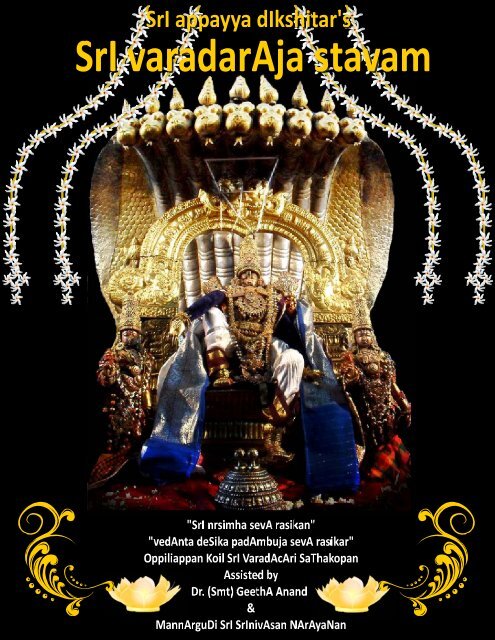
Jan 16, 2020 The Importance of Tamas Guna. Tamas is the quality of inertia, inactivity, dullness, or lethargy. It is the lowest of three qualities or Gunas. Tamas is the template for inertia or resistance to action. It has also been translated from Sanskrit as “indifference”. It is because of Tamo or Tamas guna, you experience dullness and ignorance. Charity given our of duty, without expectation of return, at the proper time and place, and to a worthy person is considered to be in satva gunam. 17.21 But charity performed with the expectation of some return or with a desire for future personal gain, or in a grudging mood, is said to be charity in rajo gunam 17.22. Dapat maganda bago matulog (TagalogEnglish) diperkosa di hutan (IndonesianEnglish) 20 lakh (EnglishHindi) meaning of ladybird (EnglishNepali) we (EnglishSwahili) namba ya simu (SwahiliEnglish) shaadi se phele hone wali wife ko kya bolte hai (HindiEnglish) pyccknn (RussianGerman) athu varaikum naan enna pannatum (TamilEnglish) keratosis (GermanItalian) maduraj (PolishEnglish) xx bf. Anakuzhi Asan vaidyasala is a two centuries and old clinic pursuing SIDDHA MEDICINE, the ancient holistic health care system of asian continent. The SIDDHA SCIENCE is a traditionl treatment system generated from tamil culture. The system aimed at keeping the three humors ( vaatham, Pitam and kapam ) in equlibriyum. Rajo Gunam In Tamil Arriba Textbook Access Medieval Engineers download free. full Version Dune Emperor Windows 10 Pe-design 10 Crack Guṇa depending.
Kunangudi Masthan Sahib (1800-1847) was a TamilQadiriyyaSufi poet and composer.[1] His songs remain popular today, especially in the Gaana music of Chennai.[2]
Masthan Sahib was born Sultan Ahmad Kadiri Lebbai to wealthy parents in Kunangudi, near Tiruchirappalli.[3][4] In his early life, he was a vendor of attar, or perfume.[3] Eventually he gave up a worldly life and became an ascetic and mystic, wandering from place to place, living in forests, and eventually settling in Chennai.[3] He spent his last years in a home in the garden of a wealthy person named Baba Lebbai.[5]
He studied under the Marakkar Sufi legal scholar and poet Takya Sahib, who composed texts on Arabic grammar, theology, and jurisprudence.[1] Takya Sahib had founded one of Tamil Nadu's major regional Muslim foundations, the Kilakarai takya.[1] His Tamil verse, just like his disciple's, is still popular.[1]
At the Tirupparankunram shrine, Masthan Sahib is said to have experienced as profound mystical awakening while undergoing chilla, a forty-day period of secluded meditation.[1] His major verse collection, the Masthan Saheb Padalgal, deals with the power of this shrine.[1]
Masthan Sahib taught his many disciples by composing around one hundred devotional and philosophical poems, totaling some 5000 lines.[3] Many of them were modeled on the work of kirtan composers and hymn writers like Thayumanavar.[3] Masthan Sahib's work has been described as having 'pathos and feeling' equal to Thayumanavar, but with simple and colloquial language that was sometimes crude or obscene.[3] Masthan Sahib was also influenced by the works of Tamil siddhars (tantric adepts).[1]
In the second half of the nineteenth century, Aiyacami Mutaliyar composed a praise-poem on Masthan Sahib entitled Kunankutiyar Patirruppattantati.[3] Twentieth-century veena player V.S. Gomathisankara Iyer set his songs to Carnatic tunes, making them suitable for concert play.[4] An album of his works sung by notable Gaana singer Mylai Venu, was released by India's National Folklore Support Center in 2008.[5]
His dargah in Chennai still attracts pilgrims and visitors.[4] It is constructed with an architectural style influenced by Hindu temples.[1] Most notably, it has a mandapam (ceremonial hall or platform) resembling those in Tamil temples.[1] That he fused influences from Hindu singers with Sufi Muslim asceticism and teachings suggests his religiosity was syncretic, combining many strands of Tamil spirituality.[1] Also buried at his dargah are four of his disciples - Pulavar Nayagangal (Hazrath Sheikh Abdul Qadir), Hazrath Qadir Mastan Sahib, Madhar Bibi and Hazrath Ibrahim Sahib.[4]
The locals of North Chennai, where he spent his last years, referred to him as Tondiar ('someone from Thondi').[4] So the neighborhood of Chennai where he lived became known as Tondiarpet.[4]
References[edit]
- ^ abcdefghijBayly, Susan (1989). Saints, goddesses, and kings : Muslims and Christians in South Indian Society, 1700-1900. Cambridge [England]: Cambridge University Press. ISBN0-521-37201-1. OCLC70781802.
- ^Valan, Antony Arul (2020). 'Gana (Gānā)'. Keywords for India : A Conceptual Lexicon for the 21st Century. London: Bloomsbury Publishing Plc. pp. 83–84. ISBN978-1-350-03927-8. OCLC1134074309.
- ^ abcdefgZvelebil, Kamil (1974). Tamil literature. Wiesbaden: Harrassowitz. pp. 114–115. ISBN3-447-01582-9. OCLC3053475.
- ^ abcdefV, Sriram (2013-09-03). 'To sing like Mastan Sahib'. The Hindu. ISSN0971-751X. Retrieved 2021-03-29.
- ^ ab'NFSC Releases'. Indian Folklife: A Quarterly Newsletter from National Folklore Support Centre. 28: 22. January 2008.

